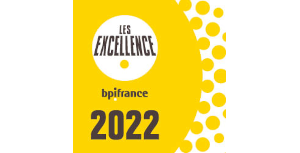In French contract law, it is often said that parties enjoy (great) freedom. However, this freedom must sometimes operate within a framework imposed by law.
This is the case when assigning an intellectual property (IP) right—especially when the assignment is made free of charge.
Such assignments are very common in France, often to facilitate commercial relationships between partners or for operational reasons within the same corporate group.
However, recent trends in case law could disrupt this practice and call into question many contracts concluded in the past.
To take the example of a trademark right, the only formality imposed by law in this area is the requirement of a written document (Article L 714-1 of the French Intellectual Property Code), and recordal on the National Trademark Register for the assignment to be enforceable against third parties (Article L 714-7 of the same Code).
Additionally, the general rules of civil law apply, and one disposition in particular—Article 931 of the Civil Code—appears to be applied quite directly by the courts.
This article states that a donation must be executed by authentic act, before a notary. A further detail: Article 931-1 of the Civil Code also provides that if such an act is null, it cannot be confirmed—in other words, it cannot be regularized but must be redone.
Several court decisions have thus held that a trademark assignment made free of charge constitutes a donation, and must therefore be executed before a notary, subject to absolute nullity.
The Judicial Court of Lyon has gone further, specifying that a new assignment agreement, executed after the first one, could cancel and replace the original act deemed null because made free of charge.
Such decisions would also apply similarly to free assignments of patent rights or designs and models.
So, yes - there is room for regularization - but the challenges are clear:
identifying the affected assignments;
signing a new deed—this time with a price—to cancel and replace the previous one;
recording the new agreement on the Patent, Design and Model, or Trademark Register…
One can easily imagine the complications in cases involving successive assignments.
Before raising the alarm, however, note that:
- This reasoning has not yet been confirmed by the Cour de Cassation (Supreme Court in France).
- The free-of-charge trademark assignments previously invalidated by the courts may have involved no form of compensation at all, which may have led judges to qualitfy them as donations.
→ A free-of-charge assignment usually means a lack of price, but not necessarily a lack of any compensation.
→ Maybe some of the free trademark assignments were in fact signed in exchange for services rendered to the assignor for example, falling out of the donations category and thus avoiding the feared nullity.
- The donation under Article 931-1 of the Civil Code requires a liberal intent from the assignor—that is an immediate and irrevocable will to relinquish for free the IP rights.
→ This intent could certainly be disputed in a number of assignments made free of charge.
Caution is still advised, as free-of-charge assignments of IP rights must also pass through the scrutiny of tax law, avoid the qualification of irregular act of management, and avoid other pitfalls that can invalidate a contract!
More generally, as far as IP rights assignment contract is concerned, it is strongly recommended to always include a compensation, whether financial or otherwise, and to avoid using the phrase “free of charge”.
Our team is here to assist you if you have any doubts or questions about this issue!
Lucie Dambreville













